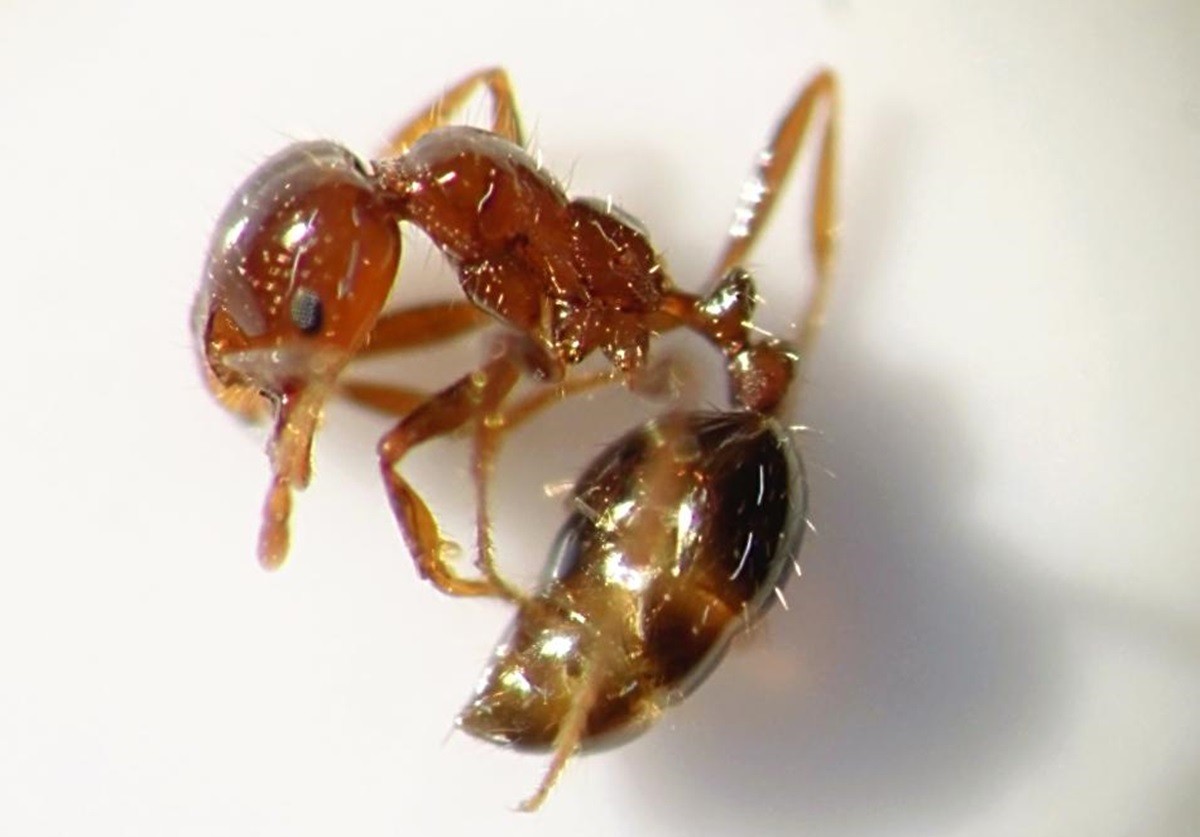
Fire ants, an alien species that has made particular inroads into Japan
7:00 JST, November 24, 2023
The Group of Seven has finalized action goals for invasive alien species that are threatening ecosystems in various regions, including the sharing of information on how such species get in and countermeasures at borders.
Policymakers from the G7 nations agreed Wednesday at a workshop in Tokyo to deepen cooperation, with the hope that the international community as a whole will strengthen measures in the future. The workshop began Monday.
G7 members will create and share a database of information on invasive alien species, strengthen research on monitoring and early detection, and establish a system to prevent the spread of invasive alien species that also involves the private sector.
Invasive alien species such as fire ants, which have been confirmed at Japanese ports, contribute to the loss of ecosystems, and there are more than 3,500 such species worldwide. The risk of such creatures entering various regions is growing every year due to the increase in human traffic and trade volume associated with globalization.
At the United Nations Biodiversity Conference, or COP15, held last December, an international goal was adopted to reduce the entry and entrenchment of invasive alien species by at least 50% by 2030.
“The world needs to work together on the issue of invasive alien species, and it’s a great achievement that Japan, as the G7 chair, was able to propose the first step toward cooperation,” said Keiichi Nakazawa, director of the Wildlife Division of the Environment Ministry, which served as the workshop’s secretariat.
